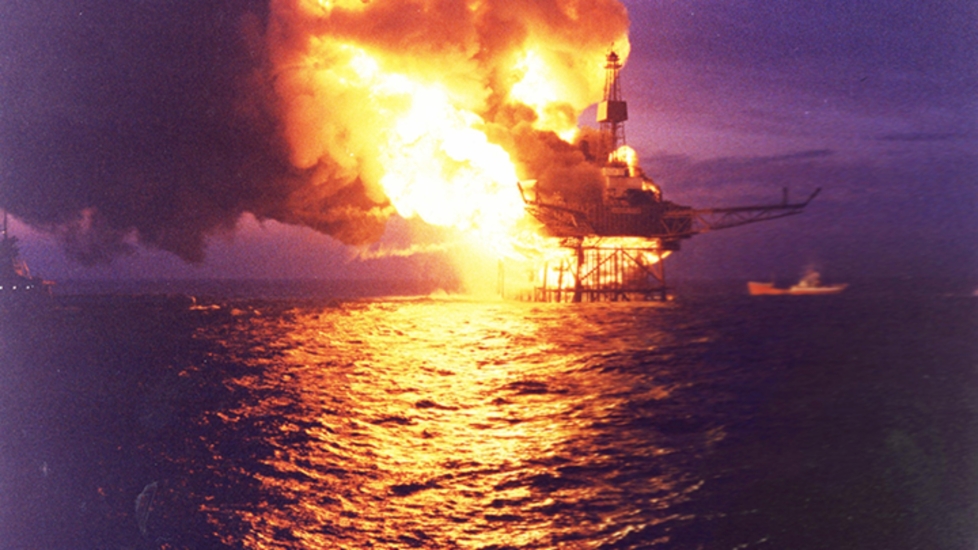
Andreas Malm is a Swedish author, academic, and climate activist based in Lund, where he is associate professor of human ecology at Lund University. He is best known for his work towards a Marxist understanding of the climate crisis, outlined in books such as Fossil Capital: The Rise of Steam Power and the Roots of Global Warming (2016); The Progress of this Storm: Nature and Society in a Warming World (2017). Recently, he has worked on the case for direct action against fossil fuel infrastructure in How to Blow Up a Pipeline: Learning to Fight in a World on Fire (2021), and the far right’s ideological denial of the crisis in White Skin, Black Fuel: On the Danger of Fossil Fascism (2022), produced in collaboration with the Zetkin Collective.
I met with Malm during his recent brief visit to Oslo, where he gave a talk at Kulturhuset at the invitation of Thomas Hylland Eriksen and took part in discussions at the University of Oslo and at Anarres café. In between engagements, he also found time to sip a glass of tap water and record this interview on the terrace outside Kunstnernes Hus.
I had considered opening with a question about oil company sponsorship in the art world, the success of campaigns like Liberate Tate, and the problems of replicating something like that in a country like Norway where all state cultural funding is bound up with fossil fuel exploitation. But it’s clear that you’re describing a situation in which something like cultural funding is, at best, a side issue. Your Kulturhuset talk, for example, updated the polemical position you set out in your recent book How To Blow Up a Pipeline. Perhaps you could begin by summarising that updated position?
Well, I started off by pointing to the recent climate disasters that we’ve seen in the Horn of Africa, South Africa, India, and Pakistan. And then the reports that have come out just in the past few days telling us that rich countries need to terminate their oil and gas production completely by 2034 if we’re going to have at least half a chance of staying within the 1.5 degree threshold [the target of the 2015 Paris Agreement]. If we want more than this 50 per cent chance, we need to quit earlier, and this means that rich countries such as Norway need to cut production of oil and gas by about half within six years.
That’s not exactly the trajectory that Norway is on, showering licenses on oil and gas companies to drill for new oil and gas fields up in the Arctic north. Norway and everyone else who’s in the business of accumulating capital from producing oil and gas are going in exactly the opposite direction. They’re just expanding, and this is being accelerated by the incredible profit bonanza that we’re seeing right now with the enormous windfall profits that are accruing to everyone in the business.

So, clearly, the situation is out of control. The oil and gas companies, and coal companies for that matter, are bent on extracting as much as possible and setting the planet on fire as quickly as possible. And nothing that has been done so far, absolutely nothing, has reined them in at all. If we don’t want to give up on life on this planet, we need to conclude that what we’ve done so far hasn’t been enough. We need to try something more; we need to step up the struggle. I can’t see how any other conclusion is possible. That’s the starting point.
Then, of course, you have to ask what we can do. What could work? What are the promises and the dangers of radicalisation or escalation? I pointed to some recent signs of escalation of the climate struggle. From a very militant action at a pipeline construction site in British Columbia in late February, where activists stormed the the site and totally gutted everything, to more gentle kinds of sabotage such as deflating SUV tyres. And then I reflected a little bit on the ethics of it, and I argued that the moral case for destroying fossil fuel properties is virtually unassailable. It’s very hard to see how you can uphold the priority of these material things over the lives of human beings that are being lost in the climate crisis. But when it comes to the strategic and tactical issues, it’s more complicated. There are clear risks with going down this route in terms of the response from the public, from the repressive state apparatus. So I argued that we still have to experiment with this.
But if we can accept the reality of the crisis and the strength of the moral case, this is still a very one-sided confrontation in terms of power and resources. I see parallels with the Campaign for Nuclear Disarmament in the 1980s. An immediate existential threat and a strong moral case is the foundation of a mass movement in Europe and the US, including direct action against infrastructure – with close to zero effect, because the last state to disarm, or to divest, wins the geopolitical game. On the other hand, even in the oil state of Norway where both major parties and more than half of the public want to exploit new oilfields, that picture might change dramatically with just a 5 per cent swing to the left. So I wonder where we are, really, in terms of the question you just asked: what could work?
Well, I have to say first of all that I’m not an expert on Norwegian oil policy. But my good friend and colleague Ståle Holgersen is, and he’s been writing about it recently for [the newspaper] Aftonbladet. Ståle’s father died in the Piper Alpha disaster [the US-owned Piper Alpha oil platform in the North Sea exploded and sank in 1988; only 61 of the 226 workers on the rig survived], but he discusses how the Norwegian oil industry causes death – not so much among its own workers, but around the world – with the export of fossil fuels. So the oil policy of Arbeiderpartiet[the Norwegian Labour Party’s policy to continue developing new oilfields] seems indefensible to me, regressive and hypocritical.
Norway is a difficult case when it comes to imagining a radical or militant movement against oil projects. There is a settler-colonial aspect to the social formation with the Sámi population but, to my knowledge, it has not yet created the kind of flashpoints that you see in the US and Canada, where so many members of the First Nations and Indigenous populations are protesting against extractive projects.

What you have here is a state completely saturated in oil and totally dominated by fossil capital in a way that suffuses the whole polity. And, although the benefits are obviously not spread evenly, the general population has a degree of loyalty to the state and to the affluence the oil revenues bring. It is precisely this that makes Norway quite obnoxious. Because it is the largest oil and gas producer in Europe, the state is so wealthy that it could easily afford to transition away from fossil fuel production.
And this is, in fact, one of the findings in a new report that just came out from the Tyndall Centre at the University of Manchester. Affluent countries that produce oil and gas are the ones that could most easily afford to renounce those revenues and engage in a transition, whereas there are countries like Gabon, or Iraq, or Congo that have virtually no other source of income than oil and gas exports. Norway just risks descending to, you know, the level of Sweden.
As you say, the Norwegian national project is saturated in oil, and it seems that there has been a lot of ideological work done to adapt the national identity to that fact. The older idea that this is a country of honest, poor, hardworking people whose happiness derives from strong social bonds and a closeness to nature is now used to justify the claim that Norway both deserves its oil wealth and will use it more wisely than others.
Norway actually now generates more income from capital management than from direct oil revenue, and a truer image of the new Norway is of a state dominated by the financial sector, which is to say a state powered by the exploitation of labour, primarily in the Global South. Still, oil and gas production is now so central to the identity of the state, to its ideology, technological and economic expertise, its global economic and political networks, that much of this investment, of course, goes back into fossil fuel exploitation. Aside from the Arctic, Norway has been buying up oilfields and seabed licences, building infrastructure and processing facilities around the world since the early 1990s, and Equinor (Norway’s state-owned oil and gas corporation) now operates in around thirty countries, including Mexico, Brazil, Venezuela, Argentina, Nigeria, Libya, Algeria, Tanzania, Angola, China, India, and Azerbaijan among many others. So Norway can, of course, afford to halt Arctic and North Sea oil exploration tomorrow, and it’s politically possible for that to happen. But true divestment is a far more contentious issue and will likely require a stronger international context than we currently see.
Yes. And, unfortunately, the logic seems to be precisely the opposite: that precisely because it’s so rich Norway is able to hold on to the idea that oil and gas production will continue deep into the last decades of this century, if not beyond, which is, of course, incompatible with any trajectory that wouldn’t smash every carbon budget and take us into three, four, or five degrees of warming. So the cognitive dissonance and the denial that seems to be ongoing in Norwegian climate policy is just extraordinary.

In your writing, from Fossil Capital onwards, you depict the climate crisis as a problem engendered, perpetuated, and exacerbated by capitalism, yet it is not directly, in the present, a crisis of or for capitalism. The resistance of states and corporations, the resistance of the global system to the need for a transition away from the exploitation of fossil fuels reflects the reality that short-term competitive advantage overrides other considerations. But doesn’t the problem then become the most famously unsolvable problem of the last century and more, which is how to overcome, overthrow, or move beyond capitalism? To end capitalism in order to save the world? When, of course, in Fredric Jameson’s famous formulation, it’s easier to imagine the end of the world.
No, I don’t think so for a number of reasons. First of all, capitalism is an incredibly adaptable and flexible system. Clearly, if you just took out fossil fuels from contemporary capitalism, you would perhaps solve the major part of the climate problem, but you would still have other problems of environmental sustainability.
But capitalism now is perhaps at its strongest ever in relation to its contenders or challengers. So this seems like an unpropitious moment to say, “OK, now we’re going to abolish capitalism,” when we have so little time left to prevent irreversible climate breakdown. The temporality suggests that it’s a bad idea.
Addressing the climate crisis necessitates logically a confrontation with very powerful fractions of the capitalist class, and that confrontation might very well in the end lead to a transcendence of capitalism as we know it. But that would be the end point of a process, not the beginning of it. Nonetheless, the accumulation of capital through the production of fossil fuels has to come to an end. There’s no way around that in any scenario.
Now, if you say that, you immediately run into a wall of material interests – very obviously in a country like Norway, where the capitalist class still pivots around exactly this. But it’s the same in a country like France, for instance. Oil and gas exploitation does not at all have the same role in France as it does here, but the single largest private company headquartered in France is Total, which is one of the worst climate criminals – building, for instance, the East African Crude Oil Pipeline, which will be the world’s longest heated pipeline. They’re building it in Tanzania and Uganda right now, and they’re extremely aggressive in expanding the extraction of fossil fuels. So, for example, that company clearly cannot continue to exist in its current form. And can you imagine that happening without directly confronting capitalist class interests in France? No, I don’t think so.
So just by raising this very basic demand – no more capital accumulation from fossil fuels – you are setting yourself up for a confrontation with very powerful segments of capital and you perhaps start a process that would ultimately move beyond actually existing capitalism.
This is in the tradition of transitional demands – you raise basic demands, and by pushing them you potentially unleash a dynamic that leads beyond capitalism. This was the strategy of the Bolsheviks in 1917. They didn’t say, “we’re going to abolish capitalism.” They demanded bread, peace, and land – very basic demands, the needs of the people, that eventually led beyond capitalism. And that’s the kind of strategic political thinking that I find most useful and least dogmatic.

But if this is the popular demand – no more capital accumulation from fossil fuels – what are the mechanisms that will realise it? Existing democracy, international treaties, extra-state institutions?
Yes, the mechanism is democracy, but nonetheless it’s very hard. As you are hinting at, and I agree, it’s very hard to imagine a capitalist party initiating the changes that need to be made. I mean, we’ve talked about the Arbeiderpartiet here, but you could just mention the ruling party in every single Western state. Strategic direct action that targets property or the circulation of goods, such actions tend to elicit anger from those who are targeted, and it’s necessary to consider them very carefully. For example, some of the blockades organised by the Insulate Britain activists ended up targeting working class commuters who were just angered because they were targeted unfairly. They would say that “it’s not us preventing Britain from being insulated; it’s the politicians, the millionaires running the country.”
The actions that Just Stop Oil, another spin-off from XR [Extinction Rebellion], have been undertaking in the past months have been more on target in that they have been very precisely blockading the circulation of oil. When you isolate the source of the problem and you locate that source, that’s more effective. And it makes more sense. You will still make some people angry, inevitably, because you’re challenging a deep material interest. It’s part of the game. But you want the right type of anger and you want people on your side. If you want to target consumption emissions, you should go for those emissions that are least necessary, and these are always the emissions created by the lifestyles of the rich who have their SUVs and multiple homes and private jets and super yachts and all of these things that produce what we might call luxury emissions. And if you target those, then you will make rich people angry and upset, but you will potentially get ordinary people on your side. So how to navigate the landscape of popular reaction is down to concrete details.
But I do think that there is vast untapped potential for mobilising popular support and mass action. That would be my wager, my hope.
So what is needed is a mass movement that can democratically override the current policy positions of the capitalist parties in democracies everywhere, but particularly in the West?
Yes. And more than that, I don’t think that a party or a president or prime minister elected on an anti-capitalist platform would be able to act sufficiently radically unless they could be backed up by mass mobilisations. I mean, imagine that Jean-Luc Mélenchon, for instance, had become the French president in this recent election, where he almost gained enough votes to reach the last round. He could potentially have accomplished a lot, but only to the extent that his position would have been supported by mass movements in France. The kind of confrontations that such radical positions entail are difficult for governments to survive without active popular support. In the case of France, this is conceivable because France is no stranger to mass protests. But it might have been the same with [Jeremy] Corbyn in Britain; it might have been the same with [Bernie] Sanders. We have been that close to winning, to that kind of potential for some sort of rupture with business as usual.
Business as usual is a key idea because of the strange character of this crisis. It’s beginning to unfold faster and faster, but not yet fast enough to damage capital accumulation – in fact, in some cases quite the opposite. The melting of the Arctic ice sheets, for example, is a golden opportunity and – as you and the Zetkin Collective touch on in White Skin, Black Fuel – there is a kind of blood-and-oil ultra-nationalism that frames the exploitation of these resources as manifest destiny.
Challenging fossil fuel interests means provoking the far right, and I’m sure that if Norway had a more radical climate movement, the oil-soaked far right would strike back and potentially be empowered by that. If you look at what happened after the murder of George Floyd, you had this mass uprising in the US, and that provoked a backlash from Republican forces and white supremacists who would drive their SUVs into crowds of people at mass protests. But at the end of the day this mass uprising contributed to the downfall of Trump – because even though it provoked a backlash from the far right, it overwhelmed the far right by the sheer breadth and depth of the uprising itself. So I don’t think we can imagine beating the far right by just staying away from provoking it. We should think of this in terms of amassing sufficient strength to overcome it.

Clearly, with every year that passes, the climate disaster seasons tend to get worse and worse, and they are beginning to strike countries in the Global North quite hard. Last summer, you had these extreme floods in Germany, you had the incredible heat waves and wildfires in Greece and Italy. We need to tell people that unless we do something about fossil fuels we’re just going to have more and more of these disasters until we can’t live any longer.
Talking about these European experiences brings us back to White Skin, Black Fuel, and the many ways in which the current situation has been, and still is, shaped by colonialism. The link you make between neoliberalism, or neo-fascism, and climate denialism, is primarily a Euro-American phenomenon. For countries like Brazil, India, China, and Russia even, it’s enough to invoke the violence, injustice, and hypocrisy that allowed Europe and the US to destroy the future in pursuit of their current dominance. In light of this history, is it possible to organise the necessary international or global movement around fossil fuels and climate targets?
There is a vibrant international climate movement with a lot of different currents and networks, some of which came together at COP 26 [the United Nations Climate Change Conference which took place 31 October–13 November 2021] in Glasgow, for instance. I mean, it’s a movement that’s pretty uneven and to an extent patchy in its global distribution. You have so many struggles happening in Latin America, in parts of Sub-Saharan Africa, Uganda, for instance, many local struggles around coal in India. It’s clear that much of the future climate struggle will have to be set in the Global South, even if it involves Western interests or corporations. The next two COPs will be in the Middle East: this year in Egypt and next year in Qatar, which is the country that’s preparing the world’s largest carbon bomb, the enormous new northern oil and gas field.
But both of these countries are dictatorships where it’s impossible to have organised popular dissent around the summit. So it’s completely disastrous and, of course, no coincidence, that they have decided to have these COPs in these two countries. I was in Egypt in December and January and spoke with comrades there who are veterans of the struggle and they admit that the prospects for organising something around the summit are essentially nil. It’s impossible. The situation in the Global South is very different from country to country. But, unfortunately, in many Middle Eastern countries, after the backlash against the Arab Spring, it’s totally impossible to organise in the open; you’ll end up in prison in no time.
And we have six years to halve production?
Yeah, well. Poor countries that rely heavily on fossil fuels should be given a little bit more time to reach zero production than rich countries, which is reasonable. But yes, it’s a very tall order.














